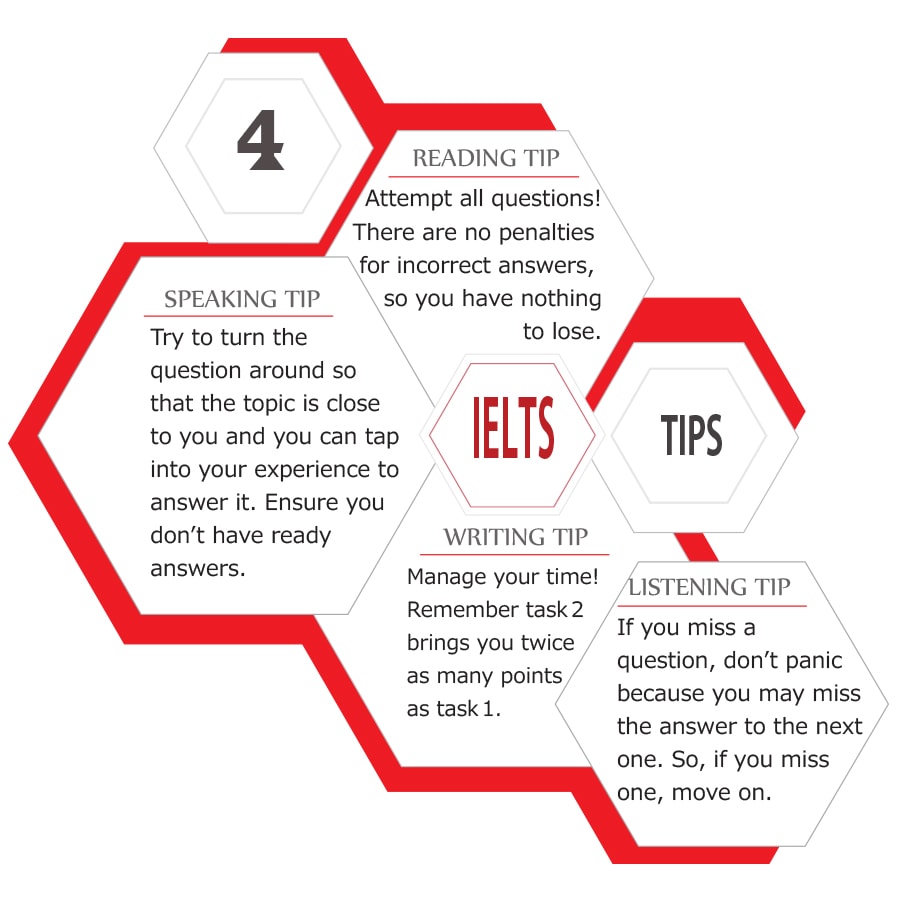
The International English Language Testing System (IELTS) is an exam that measures the English language skills of people who want to study or work where English is used as a language of communication. Its scoring is based on a nine-band scale, with band score 1 being the lowest level and band score 9 being the highest. Andrea Peneva achieved a band 8 score without much formal preparation, which is no mean feat.
In this interview, she reveals how she mastered the English language, shares her strategy and offers some useful tips for scoring high on the IELTS.
Why did you have to take the IELTS?
I want to go to Australia to take a marketing and communication course or a graphic design course. To do this, I need a student visa (subclass 500). As a non-native English speaker, I had to demonstrate my English abilities to the Department of Immigration and Border Protection (DIBP). The IELTS exam was the only option, so I didn’t have a choice.
How did you learn English? Have you lived or studied in an English speaking country before?
I learned English in school as well as during my trips and stays abroad. I spent six months working as a receptionist in Manchester, Vermont, which gave me the opportunity to talk to many native English speakers. I also spent eight months in New Zealand working as an event organiser, which further helped me polish my English. It may not seem like a very long time, but when you are surrounded by native speakers you learn the language very quickly and effortlessly. I like to travel, and I have visited countries such as Egypt, Thailand, Indonesia, Greece and Spain, where you speak English if you don’t know the native language. These trips also helped me a lot.
Why did you choose IELTS over TOEFL?
As I said, I did not choose the IELTS; the Australian government chose it for me. However, even if I had the choice, I still would have picked IELTS because, unlike TOEFL iBT, IELTS is a paper-based test. I am rather old-fashioned when it comes to test taking and I prefer my tests on paper because I feel I have more control over what I write and I don’t feel any pressure. Computers make me nervous. There is no noise in the room, which allows you to focus and perform to the best of your abilities.
How did you find the IELTS test in general?
To be honest, it was easier than I expected. I read a lot of articles and talked to many people about the exam, and they all told me that it is quite difficult. Just before the exam, I noticed that most test takers are tense, especially those who needed a good score for their studies abroad. Some said that they had spent months preparing for the test and looked really nervous. With the benefit of hindsight, I can say that the IELTS is not as difficult as it’s cracked up to be. If you are calm and focused, you are very likely to be happy with your score at the end.
Which section in the IELTS did you find the most difficult?
The Writing section was the most difficult because my time management was not as good as it should be. Test takers are supposed to spend 20 minutes on the first task and 40 minutes on the second task, the essay. I spent 40 minutes on the first task and naturally was pressed for time for the second task. That was a mistake on my part.
Check out: How Is IELTS Writing Task 1 Marked? (Video)
Were you nervous during the test? Is it noisy in the testing room? Is it difficult to concentrate?
I was not nervous at all. In fact, I was sleepy. The room in which you take the test is nice and quiet, which helps you concentrate.
Did you practise before the test?
Not as much as I wish I could. I took a lot of Reading and Listening practice tests. In addition, my job involves long phone calls with foreign clients, which I consider good speaking exercise. I did not practise much writing, which is one of the reasons why I achieved a 7 on the Writing section, my lowest score.

The speaking section is a conversation with an examiner, unlike the respective section on the TOEFL iBT where it is on a computer. Which one do you prefer and why?
I prefer one-to-one conversations where you can make eye contact and see the reaction of the person you are talking to. I find it much more natural than talking to a computer.
I would like to advise test takers to talk all the time without lengthy interruptions. For the second part of the Speaking section, you will be asked to talk about a particular topic. You will be given a pen and paper to write down your thoughts. You have one minute to do that. Use that time to prepare, don’t start talking before making bullet points of your thoughts. I did not write anything down, which was a mistake. Try to turn the question around so that the topic is close to you and you can tap into your experience to answer it. Ensure you don’t have ready answers. The examiner will sense that you have memorised your responses and give you a lower grade.
Check out: How Long to Study for TOEFL or IELTS
Are you happy with your score and what is the secret to achieving top performance on the IELTS?
Yes, I am. It’s not important how long you study but rather the quality of your studying. Maintaining your composure on the test day is also important. Just focus and do your best. If you want to achieve something, you have to apply yourself.


Comments